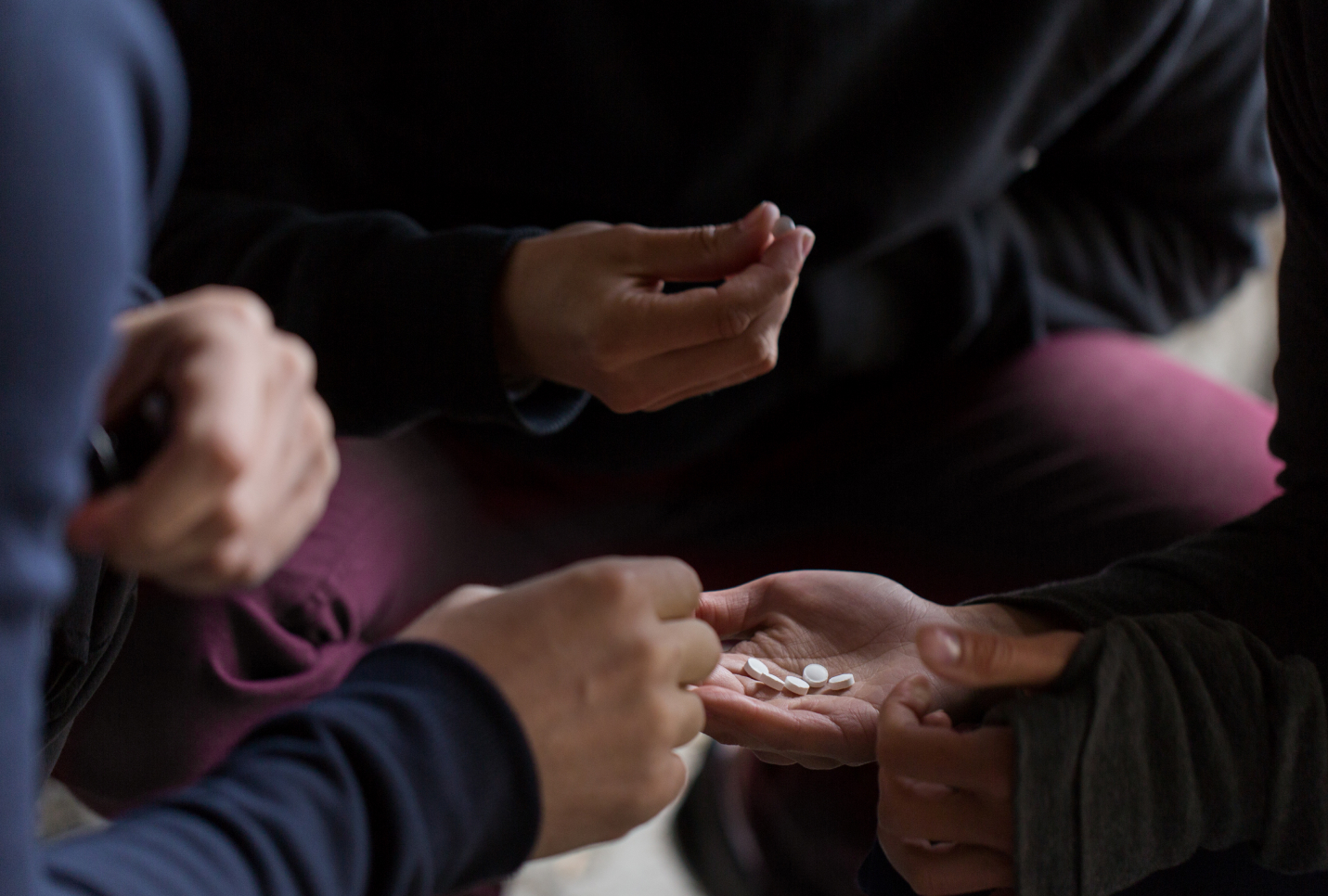When grappling with the thorny issue of heroin addiction, many people might feel overwhelmed and alone. But it’s important to remember that there’s help available, and taking the first step toward seeking this help is a commendable milestone in the recovery process.
Here at SOBA New Jersey, we understand the struggle and are dedicated to providing the necessary support and care to guide you or your loved one through this challenging journey. One of the crucial steps in this journey is the detoxification process, a medical procedure aimed at clearing toxins from the body and managing withdrawal symptoms.
What Should You Know About Heroin Addiction?
Understanding heroin addiction is essential on the road to recovery. But what exactly is heroin addiction, and how does it affect those who struggle with it?
Heroin, an opioid drug derived from morphine, is highly addictive. It operates by interacting with opioid receptors in the brain, inducing feelings of intense pleasure and euphoria. Over time, repeated use of heroin can lead to physical dependence and addiction — an intense, compulsive urge to use the drug despite its harmful consequences.
Addiction doesn’t just impact the individual; it can also affect those around them, causing emotional distress and strain in relationships. The disruptive nature of heroin addiction often extends beyond the user, touching every aspect of their life.
Employment, education, social activities, and family bonds can be severely affected, further underscoring the comprehensive care and support required to overcome addiction. That’s where SOBA New Jersey comes in.
As a trusted and dedicated rehabilitation facility, we’re here to provide a safe, warm, and non-judgmental space for recovery. We understand that addiction is not a choice, but recovery is. Our mission is to guide you through every step of your recovery journey, starting with understanding the nature of heroin addiction.
Why Is Detox an Important Part of Heroin Addiction Treatment?
Detox, short for detoxification, is an essential part of heroin addiction treatment. It’s the first step in the recovery process and involves the removal of heroin and other toxins from the body. This helps to manage withdrawal symptoms when one stops using the drug.
The detoxification process is pivotal as it addresses the physical aspects of addiction, helping the body rid itself of the drug’s influence. Moreover, detox is essential because it initiates the physiological healing process, preparing the individual for the next stages of recovery, which address the psychological aspects of addiction.
Attempting to detox from heroin at home, or “self-detox,” can be hazardous due to severe withdrawal symptoms such as restlessness, muscle and bone pain, insomnia, vomiting, and more. These symptoms can become overwhelming without medical support and potentially escalate to life-threatening conditions.
Unsupervised detox can also increase the risk of relapse due to the discomfort and distress associated with withdrawal symptoms. That’s why a professionally supervised detox is crucial.
At SOBA New Jersey, our expert medical team ensures a safe and comfortable detox process. We provide medical supervision and care tailored to each individual’s needs, making the detox process manageable and significantly safer than attempting it alone. Our team is prepared to manage any complications that may arise, providing reassurance and expert care to individuals during this critical first step toward recovery.
What To Expect During a Heroin Detox
If you’re preparing to undergo a heroin detox, feeling a bit apprehensive about the unknown is natural. At SOBA New Jersey, we’re committed to making this process as comfortable and manageable as possible for you. Here’s a brief overview of what to expect during detox with us.
Upon admission, our experienced medical team will assess your health status, history of substance use, and any co-occurring mental health disorders. This comprehensive evaluation is crucial as it provides a holistic view of your current situation.
The information gathered is vital in helping us develop a personalized detox plan that caters to your unique needs. Our approach to care is tailored, ensuring that your treatment plan aligns with your physical, emotional, and psychological needs.
The Detoxification Process
During detox, our primary aim is to manage withdrawal symptoms while your body adjusts to the absence of heroin. This might involve using approved medications to alleviate discomfort and potential cravings under the careful supervision of our medical staff.
While challenging, it’s important to note that this phase is temporary and a significant first step towards recovery.
Part of our detox protocol involves regular check-ins and monitoring, allowing our medical team to adjust your treatment plan as necessary and respond quickly to any medical needs. This level of attentiveness ensures your detox process is as comfortable and safe as possible.
Compassionate Care Throughout the Detox Process
Regarding detox, we understand that your mental and emotional well-being is just as crucial as your physical well-being. With us, you can expect to be treated with the utmost dignity, respect, and compassion throughout your detox process.
Our team at SOBA New Jersey is dedicated to providing a high level of care and attention, offering reassurance and support around the clock. Our small size allows us to focus on you as an individual, ensuring you receive the personalized care you deserve.
We understand the emotional challenges of detox, and our team is committed to providing emotional support, empathy, and understanding throughout the process. This compassionate approach underscores our belief in each individual’s strength and resilience in their recovery journey.
At SOBA New Jersey, we acknowledge you as a distinct individual with your own unique needs and strengths, and we passionately believe in your potential to lead a fulfilling life free from addiction.
Coping With Withdrawal Symptoms
Withdrawal symptoms can be one of the most challenging aspects of the detox process. These symptoms, which can range from mild discomfort to severe physical and psychological distress, are a natural response as the body adapts to the absence of heroin.
Some of these withdrawal symptoms may include:
- Restlessness and agitation
- Muscle aches and joint pain
- Insomnia or sleep disturbances
- Sweating and fever
- Increased heart rate
- Nausea and vomiting
- Diarrhea
- Intense cravings for heroin
- Anxiety and depression
- Irritability and mood swings
- Flu-like symptoms (chills, runny nose, fever)
At SOBA New Jersey, we utilize evidence-based medications to alleviate symptoms like restlessness, nausea, muscle aches, and anxiety.
It’s essential to remember that withdrawal symptoms can be unpredictable and potentially dangerous if not managed under professional medical supervision. That’s why it’s crucial not to attempt detoxification alone.
Remember, recovery is a journey, and each step, no matter how difficult, brings you closer to reclaiming the life and happiness you deserve. You don’t have to go through it alone.
Moving Forward After Detox: Treatment Programs at SOBA New Jersey
Once the detox process is complete, it’s crucial to understand that the journey to recovery doesn’t end there. At SOBA New Jersey, we’re dedicated to supporting you through the next steps of your recovery journey, providing a variety of treatment programs tailored to your individual needs.
Our treatment programs are designed to address the root causes of addiction, offering you the tools and skills needed to achieve long-term sobriety. We offer a range of services, including Dual Diagnosis treatment for co-occurring mental health disorders, short-term residential and long-term rehab programs, outpatient treatment, family programs, and much more.
Our holistic approach includes therapies like adventure therapy and spiritual care alongside traditional treatment methods to foster overall wellness and ensure a comprehensive recovery journey. You can also benefit from our telehealth services, bringing our dedicated support and care directly to you, wherever you may be.
We work with you to create a robust aftercare plan, ensuring you’re well-equipped to face the world with a renewed sense of purpose and confidence in your sobriety. We believe every individual is unique, and we strive to cater to these unique needs to ensure you have the foundation for sustained recovery.
Start Your Journey Towards Sobriety
Embarking on the journey to recovery is a courageous act, one that is built on healing, self-discovery, and personal growth. In this journey, the first significant step is the detoxification process, an essential part of recovery where the body rids itself of the heroin’s influence.
This process, while challenging, is made safer and more comfortable when supervised by professional medical teams like the one at SOBA New Jersey.
Remember, you are not alone in this journey. At SOBA New Jersey, we are dedicated to supporting you every step of the way, helping you reclaim the life and happiness you deserve. Our team of skilled professionals, including medical staff, wellness coaches, and aftercare planners, stand ready to provide personalized and compassionate care.
Your journey to recovery starts with understanding, compassion, and quality care. Reach out to us at SOBA New Jersey when you’re ready to take the next step toward sobriety. Together, we can pave the way toward a healthier, happier future that is within your reach.
Sources:
Heroin DrugFacts | National Institute on Drug Abuse (NIDA)
How opioid drugs activate receptors | National Institutes of Health (NIH)


